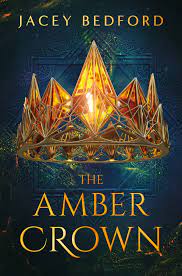I thoroughly enjoyed my time at FantasyCon this year. Great panels, great people and a wonderful atmosphere. Such a packed and varied programme that I (and plenty of others) skipped lunch in order to attend as many interesting and (to us writers) valuable workshops and panels as possible.
Needless to say, I took loads of useful ideas away with me. Here are a few little gems:
Stealing from the Past: Fantasy in History (Jacey Bedford, Susan Boulton, Anne Lyle, Juliet E McKenna, Toby Venables, Susan Bartholomew)
- What you think is true about history probably isn’t.
- Think about: what are the usual rules in this time/society?
- Find the base line (i.e. the ordinary people), so that you can then show what it means to be extraordinary in the time period.
- There are so many ways that humanity has not changed over the millenia.
Protag/Antag: Character Creation (Ruth Booth, John Connolly, KT Davis, Peter Newman, James Oswald, Caroline Hooton)
- Every character is a hero in their own minds (can justify their actions)
- Play fair with the rules you have created
- Keep your characters interesting and believable (know why your characters behave they way they do) then it doesn’t matter if they’re ‘good’ or ‘bad’
- The hook can be not what you know about the character, but what you don’t
- Less is more in many ways
Blades, Wands and Lasers: Fighting the Good Fight Scene (Clifford Beal, Juliet E McKenna, Kevin Murphy, Jo Thomas, James Barclay)
- Think about the psychological aspects of a fight: when experts fight, their moves and counter moves are done automatically
- In real life, sword fighters aim to disable via strikes to the neck, wrist and behind the knees
- The aim is to get as many combatants off the field as possible. If you kill your opponent, his/her colleagues will just step over them and continue the fight. If you injure you opponent, his/her colleagues are more likely to want to take them to a medic (so three off the field with one injury)
- Young men are more afraid of being disabled than being killed
- Luck plays a huge part in any fight/battle
- All fights happen one-to-one, whether in a duel or a battle
- Tactics when confronted: 1. Run Away; 2. Break their will to attack
- When fighting: Don’t look at the eyes (they can fake you out); Don’t look at the weapon; LOOK at the body language.
Quote: “The more I practice, the luckier I get.”
The last quote applies to fighting, but I think you can apply that to writing too!
There was lots of fun stuff to do in the evenings, of course. I particularly enjoyed the performed reading of ‘One for the Road’. A comic short story by Paul Kane, ably performed by James Barclay, Guy Adams, Lee Harris and Phil Lunt. They certainly brought to life the Four Horsemen of the Apocalypse!
The live edition of Tea & Jeapardy was excellent and very entertaining. Emma Newman, assisted by Latimer the butler, interviewed Brandon Sanderson over tea and cake (and a cursed shield). Great stuff!
I’ve already booked my ticket for next year’s Fantasy Con, to be held in the wonderful seaside town of Scarborough.

 The village doesn’t seem…
The village doesn’t seem…